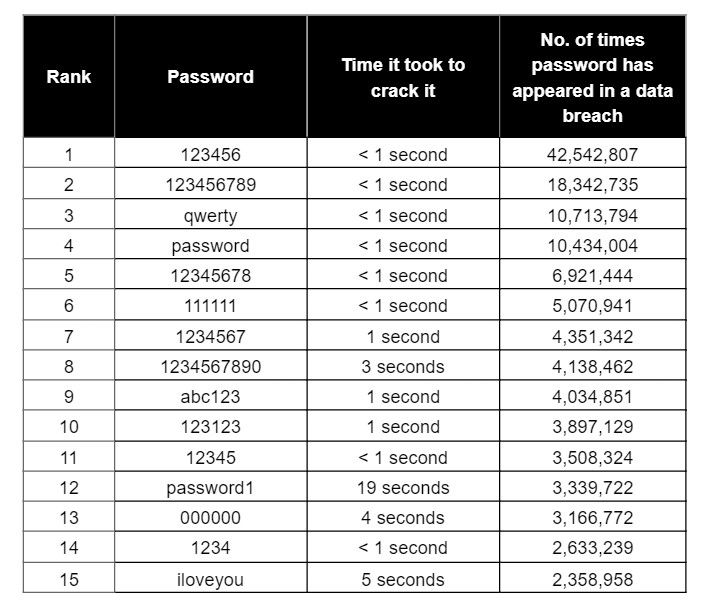share on
Among the top 15 are "123456789" and "qwerty".
Are you guilty of ever using "123456" or "password" as your desktop or application password?
We hope not! But if you are, well, you're sadly not alone — we just hope you have never been hacked. According to recent research by Preply, the above two examples are among the top five most commonly hacked passwords in Singapore, with "123456" in top spot with 42.5mn data breaches; and "password" in fourth spot with 10.4mn data breaches.
Taking the second spot is "123456789", compromising 18.3mn data breaches; while in third place, "qwerty" is also easily cracked, and has been exposed in 10.7mn breaches.
Interestingly, the research noted that 96% of the most commonly hacked passwords in the country are under 10 characters long, highlighting just how prevalent short, easily guessable combinations are. Thus, the need for many platforms to enforce stricter password rules, requiring users to create longer, more complex passwords.
Overall, the 15 most commonly hacked passwords in Singapore have been revealed as:

In lieu of the above, the research highlighted three top tips for creating strong, secure passwords:
Create a unique and unpredictable password: Steer clear of using single, common words in your passwords, as they are among the first things hackers try. Instead, opt for a combination of random, unconnected words that have no clear sequence or pattern.
To boost security, users should integrate numbers, special characters, or unexpected capitalisation throughout your password. Avoid using recognisable keyboard patterns, popular phrases, or personal information, as these make it easier for hackers to crack your password.
Incorporate multiple languages: Using words from different languages or dialects can be a good strategy to create an unpredictable password, adding complexity and making it far harder for hackers to crack.
For example, consider pairing an English word with one from another language you speak or find meaningful. Add unexpected symbols, numbers, or random capitalisation between or within the words to create an even stronger password.
Prioritise length and variety: Longer passwords require significantly more effort to crack, especially when they include a mix of uppercase and lowercase letters, numbers, and symbols. Therefore, it would be good to aim for at least 10 characters to maximise security, remembering that every additional character makes your password exponentially harder to break.
ALSO READ: What's your workplace persona?
Lead photo: 123RF
Infographic: Preply
share on


